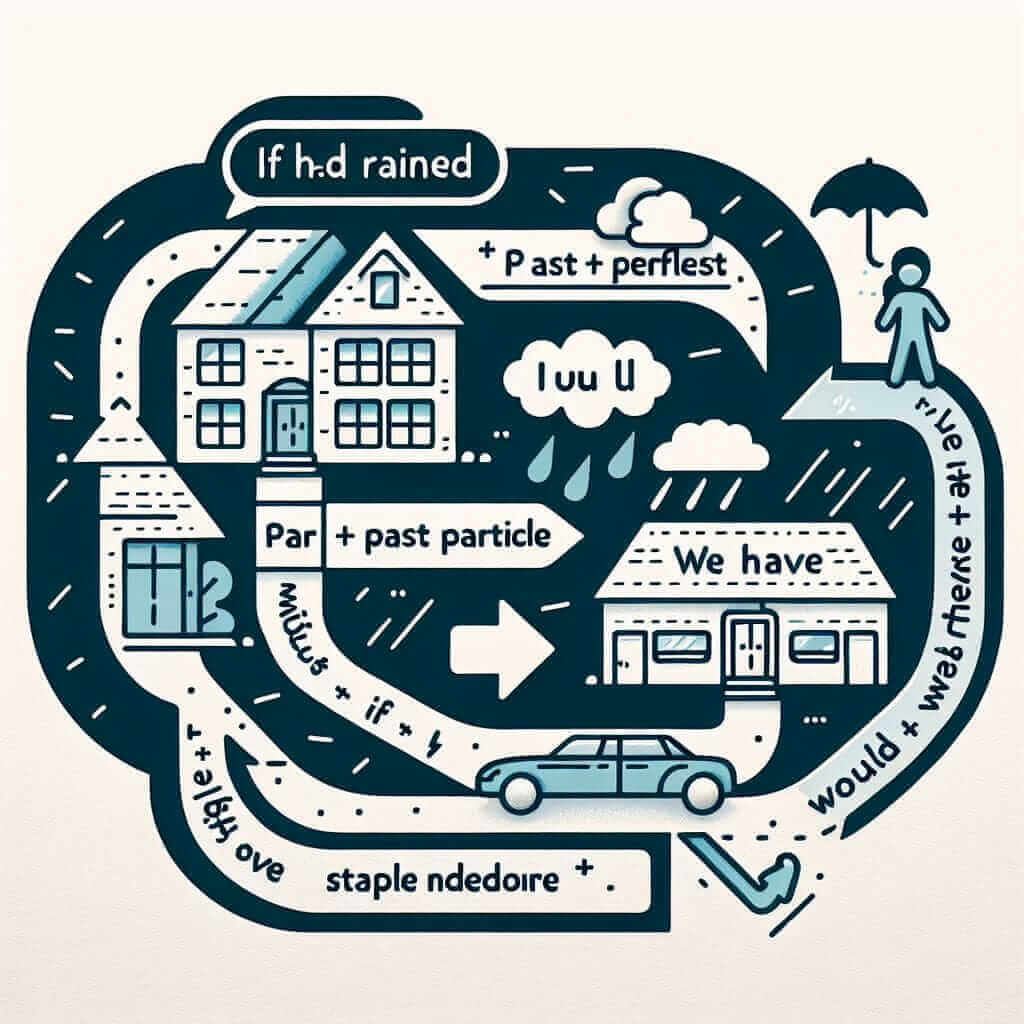Many of my IELTS students struggle to use the third conditional correctly, even though it’s a structure that can significantly enhance your speaking and writing and demonstrate a higher level of grammatical range. This structure often trips people up because it talks about the past in a slightly different way than usual. Let’s analyze a few examples to understand why.
Example 1: Speaking (Part 3)
Examiner: Do you think some people are born lucky when it comes to success?
Candidate: I wouldn’t say so. Luck plays a role, but I believe hard work is more important. Had I not dedicated myself to studying, I wouldn’t be aiming for a postgraduate degree right now.
Analysis: Here, the candidate uses the third conditional to refer to a past situation (not dedicating himself to studying) and its hypothetical, opposite result (not aiming for a postgraduate degree).
Example 2: Writing Task 2
Some argue that the education system should focus solely on practical skills for the workplace. However, others believe that subjects like art and music are equally important. Discuss both views and give your opinion.
Candidate Response (excerpt): Supporters of a purely practical curriculum often cite higher employment rates as a key benefit. Had traditional education systems prioritized vocational skills, perhaps unemployment rates would indeed be lower. However, this view overlooks the crucial role of creativity…
Analysis: In this writing excerpt, the candidate uses the third conditional to present a hypothetical past (traditional education prioritizing vocational skills) and its imagined consequence (lower unemployment rates).
Understanding the Third Conditional
The third conditional is used to express an unreal or imagined situation in the past and its hypothetical result. In essence, we’re exploring “what could have been” if something had been different.
Form and Usage
The structure follows a clear format:
If + past perfect, … would have + past participle
OR
Had + subject + past participle, … would have + past participle
Breakdown:
- If + past perfect/Had + subject + past participle: This part of the sentence sets up the unreal past condition. It’s important to note that we use the past perfect (had + past participle) even though we’re talking about a hypothetical situation.
- Would have + past participle: This part describes the imagined result that would have occurred if the unreal past condition had been true.

Examples:
- If I had woken up earlier, I wouldn’t have missed the bus. (But I woke up late and missed the bus.)
- She would have traveled the world if she had had enough money. (But she didn’t have enough money, so she didn’t travel the world.)
Applying the Third Conditional in IELTS
Let’s examine how to effectively utilize this structure in different sections of the IELTS exam.
Speaking:
-
Part 2 (Cue Card): When narrating an event or experience, you can use the third conditional to express regret or to consider alternative outcomes.
- Example: Describing a time you failed to achieve a goal – “…and although it was disheartening, I learned a valuable lesson. Had I managed my time more effectively, I might have achieved the desired outcome.”
-
Part 3 (Discussion): The third conditional is particularly useful for speculating about past events or hypothetical situations and their impact on the present.
- Example: Discussing the impact of technology – “Some argue that if social media hadn’t emerged, our social interactions today would be vastly different.”
Writing:
-
Task 1 (Describing Trends): While less common in Task 1, you might use the third conditional to describe how a trend might have differed under different circumstances.
- Example: Analyzing a graph on CO2 emissions – “Had stricter environmental regulations been implemented earlier, the increase in CO2 emissions might have been less steep.”
-
Task 2 (Opinion/Discussion Essay): The third conditional is highly valuable for presenting arguments, counter-arguments, and exploring hypothetical situations.
- Example: Discussing the benefits of space exploration – “Critics argue that the vast sums spent on space exploration could have been better allocated to solving earthly problems. However, had we not ventured into space, many technological advancements that benefit humanity might not exist today.”
Common Errors and How to Avoid Them
-
Incorrect Tense Sequence: One of the most frequent errors is using the wrong tense within the third conditional structure. Remember, the structure relies on the past perfect and “would have + past participle.”
- Incorrect: If I would have studied harder, I would have passed the exam.
- Correct: If I had studied harder, I would have passed the exam.
-
Confusing the Second and Third Conditionals: The second conditional talks about hypothetical situations in the present or future, while the third conditional deals with the past.
- Second Conditional: If I had more free time, I would learn a new language. (Hypothetical present)
- Third Conditional: If I had had more free time last year, I would have learned a new language. (Hypothetical past)
Mastering the Third Conditional for IELTS Success
The third conditional is a powerful tool for expressing complex thoughts about hypothetical past situations. By understanding its form, usage, and how to avoid common errors, you can incorporate it naturally into both your speaking and writing, thereby demonstrating a higher level of grammatical accuracy and range—essential ingredients for achieving a higher band score on your IELTS exam.